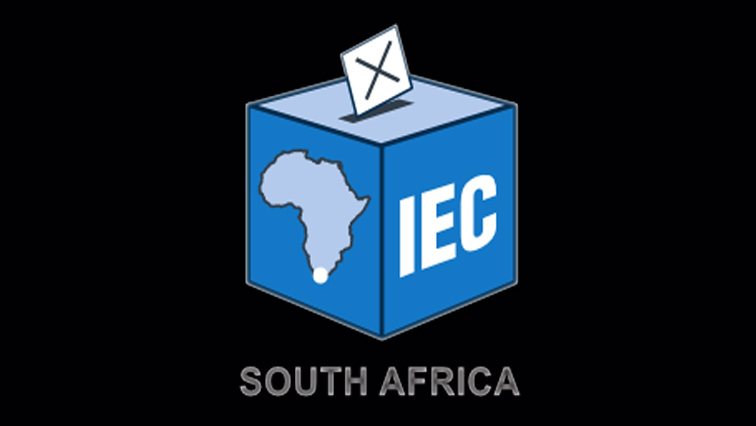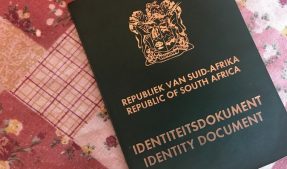South African politics could soon be given a shot in the arm following the country’s apex court ruling in June this year that independents are legally entitled to contest national and provincial seats in general elections.
While the judgment dealt with the issue of political party funding in the main, it caught many political pundits off guard when Chief Justice Mogoeng Mogoeng cited a constitutional flaw within the Electoral Act itself.
June’s Constitutional Court judgment affirmed that a voter needs to know how political parties and independents are funded in order to make an informed electoral choice.
More importantly, the judgment asserted that as much as every voter has a right to vote in any legislative body in this country’s constitutional architecture, that voter has every legal right to simultaneously stand for public office in any sphere of government.
Nowhere in South African law does it state that independents may only stand for election in local government elections.
In his judgement, Chief Justice Mogoeng Mogoeng emphatically states that “our constitution does not itself limit the enjoyment of this right to local government elections”; and that “the right to stand for public office is tied up to the right to vote in elections for any legislative body”.
To the ordinary voter, this simply means that if you are enfranchised to vote in any of the country’s elections for the National Assembly, provincial elections and local councils, you are well within your constitutional right to meaningfully participate in those elections as an independent candidate or as a representative of any particular political party.
So what needs to happen now?
The key take-away from Chief Justice Mogoeng Mogoeng’s June 21 judgment remains the Electoral Act’s incongruence with the nation’s constitution.
For the Electoral Act to be aligned to our country’s blueprint, it has to be amended.
What needs changing in the Electoral Act is the clause that rigidly refers to potential political office-bearers needing to belong to a political party to contest elections at national and provincial level.
If they are not members of an established political party, they cannot stand for high office. This is not correct, as Mogoeng told us in June, arguing that such an exclusion is not mentioned anywhere in the constitution.
Can the Electoral Act be amended in time for the 2019 general elections?
This is highly unlikely considering the 2019 national and provincial elections are due to take place around May, as announced by President Cyril Ramaphosa at a United Nations event last month.
It is unlikely that there will be sufficient legislative time to push through such changes.
Executive Secretary for the Council for the Advancement of the South African Constitution or CASAC, Lawson Naidoo, agrees.
“In my opinion, this is highly unlikely before the 2019 polls because there is much preparatory work that will still need to be done including legislative amendments and the drawing of constituency boundaries,” Naidoo says.
In addition to these processes, the Electoral Act must be amended to be brought in line with the constitution.
“Even with the Electoral Commission (IEC), they will need to sort out their own preparatory processes; and the key element of public consultations will need to be rolled out,” Naidoo adds.
Proposals for South Africa to use a mixed constituency-based system
Over the years there has been a lot of debate and criticism about South Africa’s proportional representation electoral system, for putting power in the hands of party bosses and not the voter.
Suggestions have abounded with many advocating for the national and provincial spheres of government to move to a mixed constituency and proportional representation system similar to the one used for electing local leaders. Such a system will allow independent candidates to participate in the elections.
The Frederick Van Zyl Slabbert report of 2003 and the more recent Report of the High Level Panel on the Assessment of Key Legislation and the Acceleration of Fundamental Change steered by former President, Kgalema Motlanthe have both called for a mixed constituency-based electoral system.
The Van Zyl Slabbert report called for electoral reform based on ‘multi-member constituencies’. In its design, this system would entail 69 multi-member constituencies across all nine provinces, with 300 out of the 400 members of the National Assembly coming from these closed constituency lists. The remaining 100 MPs could then come from party PR lists.
Support for such a system was further strengthened with parliament’s 2007 High Level Panel report, which also proposed a mixed constituency system.
“One of the major challenges with the current electoral system is the weakness of the PR (proportional representation) system in holding politicians to account to the electorate. Members of Parliament are appointed, not directly by voters, but rather by the party, based on candidate lists submitted to the electoral commission ahead of elections. This makes them beholden to the party and its leadership rather than voters and places party political and loyalties ahead of effectiveness and delivery,” the report reads.
Changing South Africa’s electoral system
But changing the electoral system will not automatically translate into ensuring more accountability to voters. Or at least this is what constitutional expert Professor Pierre De Vos argues on his blog (see www.constitutionallyspeaking.co.za).
For Professor De Vos, South Africa has a “good electoral system”, one which rates highly in terms of the prized attributes of “fairness, inclusiveness, gender diversity and simplicity”.
Even if South Africa moves to adopting a mixed constituency and PR system of electing national and provincial leaders, political party elites will continue their tight grip over election lists.
“MPs and MPLs are therefore individually accountable to their parties, not to voters. Party MPs and MPLs who criticise the leaders of their party in public run the risk of being dumped by their party when the party draws up the lists for the next election or even – in extreme cases – to be fired from the legislature and redeployed as ambassador to Venezuela,” Professor De Vos stipulates.
Collateral damage resulting from a partly first-past-the-post system could also result in gender representation suffering.
“In countries with such a first-past-the-post system, there also tends to be far fewer women MPs. Forty-two percent (42%) of MPs in South Africa are women – far above the average for democracies around the world – and probably far more than there would have been if we had a first-past-the-post-system,” Professor De Vos adds.
Changing the electoral system is no panacea for accountability. Both Professor De Vos and CASAC’s Lawson Naidoo concur.
“Changing the electoral system will not automatically ensure greater accountability. It may be necessary but not a sufficient step in that regard. Our political culture will also need to change,” warns Mr Naidoo.
Professor De Vos further argues that even if South Africa adopts the mixed system of electing leaders at provincial and national level in line with how it is done at local government ward and PR level, this too negates any form of accountability. Party bosses will still pull the strings.
Ward candidates, as an example, are not free agents as one might think. They are selected by the political party they’re a member of. These parties draw up the lists as to who will stand where. The PR list becomes even more complicated as one’s position on any such list is the ultimate factor.
The South African Institute of Race Relations (SAIRR) has lauded Chief Justice Mogoeng Mogoeng’s ruling, saying that it may inevitably result in a “fairer electoral system” with national and provincial representatives being accountable at last to the people who vote with their feet.
“The actual mechanics of a new system can be discussed, but the potential changes to our electoral system, which will allow independents to run and result in at least some MPs and MPLs being elected from geographical constituencies, is very good news. It is not a silver bullet to solve all the country’s problems, but it will increase accountability in South African politics, and stimulate greater engagement by ordinary citizens. It is a step that will only benefit South African democracy,” a statement from the organisation reads.






